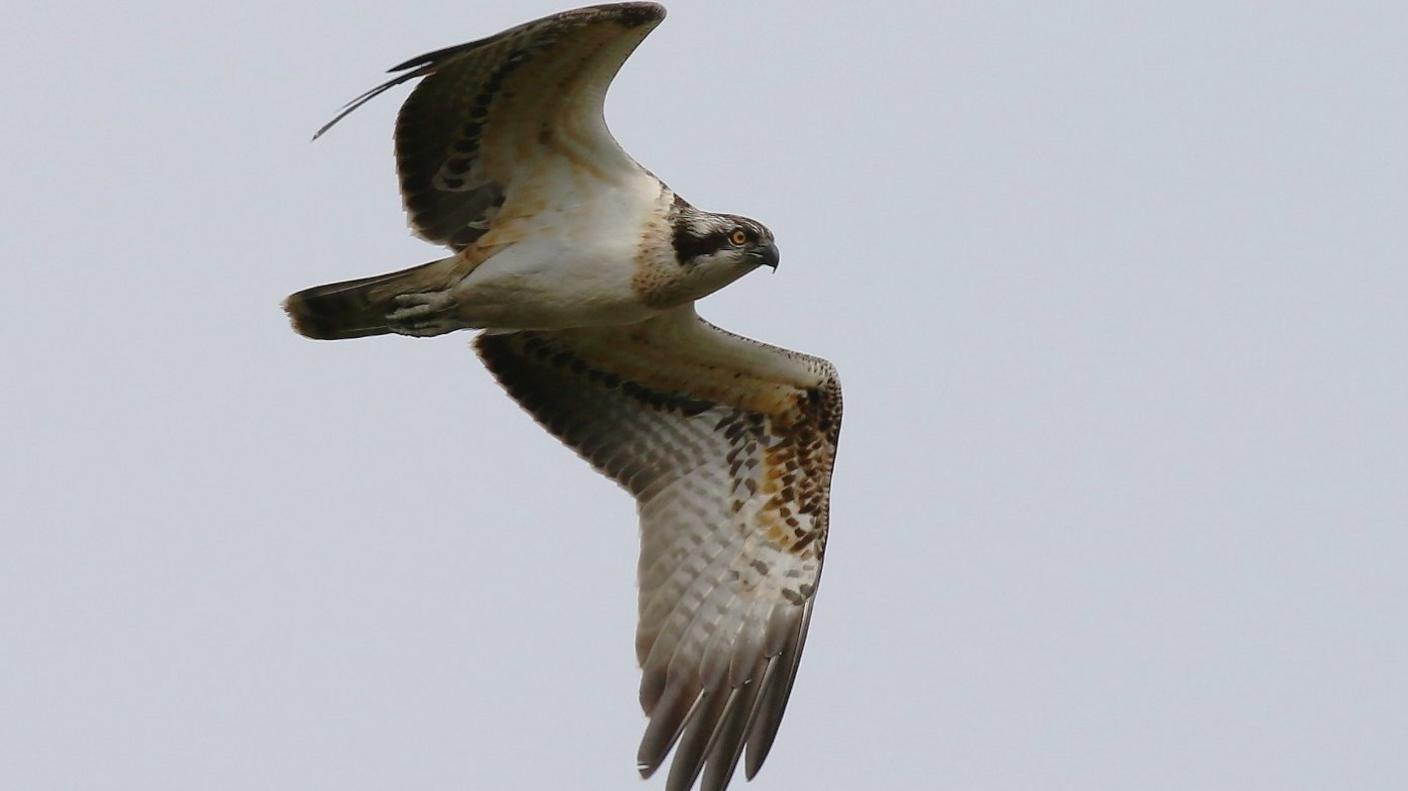Poole Harbour ospreys: Chicks hatch to south's only breeding pair
- Published
Charity Birds of Poole Harbour have installed a camera to watch the nest
The only breeding pair of ospreys on England's south coast have hatched their first two chicks of the year.
It is the second year the birds, which are part of a reintroduction programme, have successfully bred in Poole Harbour, Dorset.
Last year they raised two chicks, becoming the first known ospreys to breed in southern England since 1847.
One of the fledglings was killed by a Goshawk. It is hoped the other will return from migration next year.
The reintroduction programme, led by conservation charity Birds of Poole Harbour, began in 2017 with the aim of establishing a breeding population.
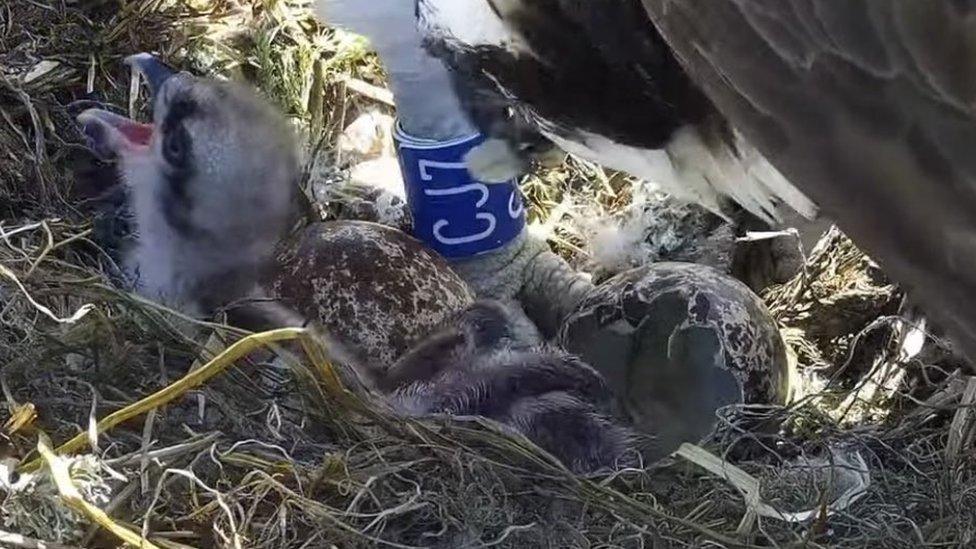
A camera allows the public to watch the birds hatching in real time
A webcam captured the first bird hatching, external on Monday at 22:17 BST. By Tuesday lunchtime, two chicks had appeared.
Brittany Maxted, who manages the charity's osprey project, said: "This is the first time we have had cameras that can look into the nest so people can see them hatch.
"We hope they will produce even more birds this year."
In 2022, the pair laid three eggs but one did not hatch.
"For a first-time breeding pair, it's not unusual. They did really well," Ms Maxted said.
"Those chicks were quite important to the population so for one to be predated was quite a blow but it meant the other chick received all the attention of the parents."
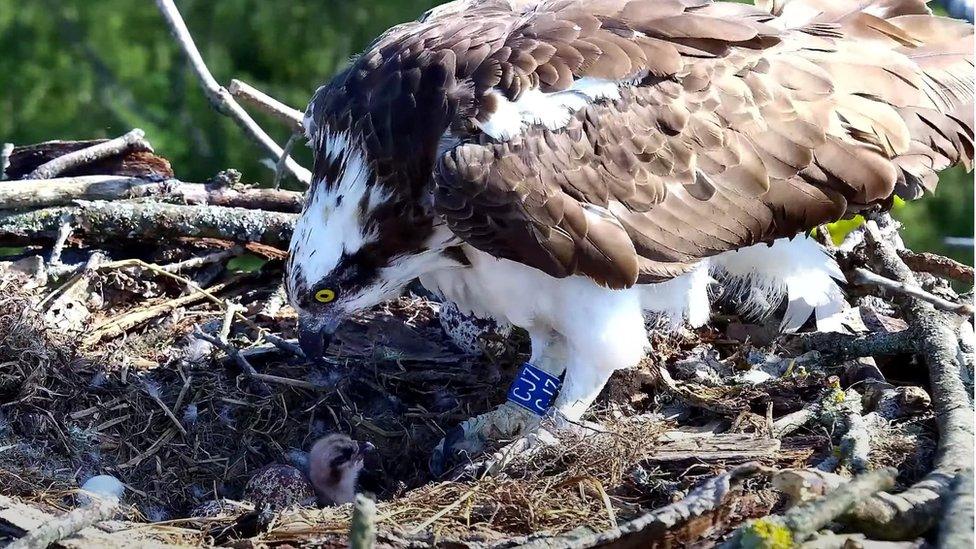
The first chick hatched late on Monday
It is thought the surviving bird, a female with the ring number 5H1, migrated to West Africa where conservationists anticipate she will stay for two winters.
Ms Maxted added: "When she comes back next spring, we will be keeping an eye out. It's nerve-wracking, waiting for them to come back.
"They are long-lived birds so it can take some time."
The fish-eating birds of prey historically bred across the British Isles but populations drastically declined in the Middle Ages.

Follow BBC South on Facebook, external, Twitter, external, or Instagram, external. Send your story ideas to south.newsonline@bbc.co.uk, external.
Related topics
- Published5 July 2022
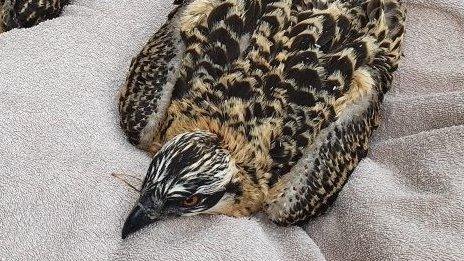
- Published3 June 2022
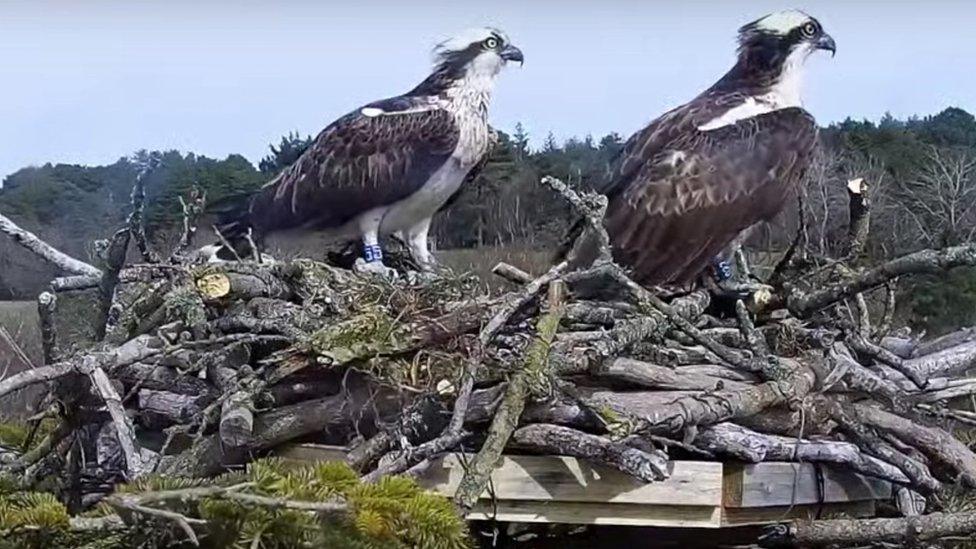
- Published29 April 2022

- Published20 June 2017
